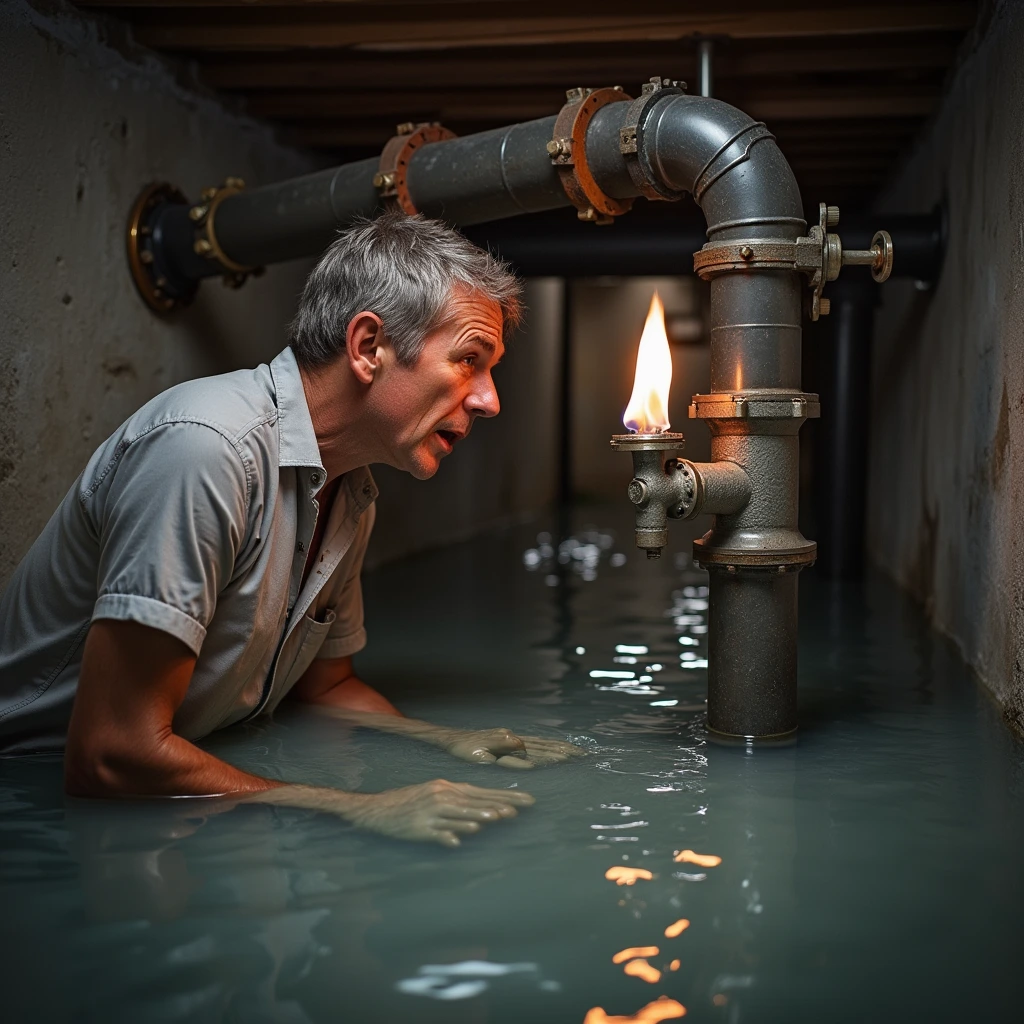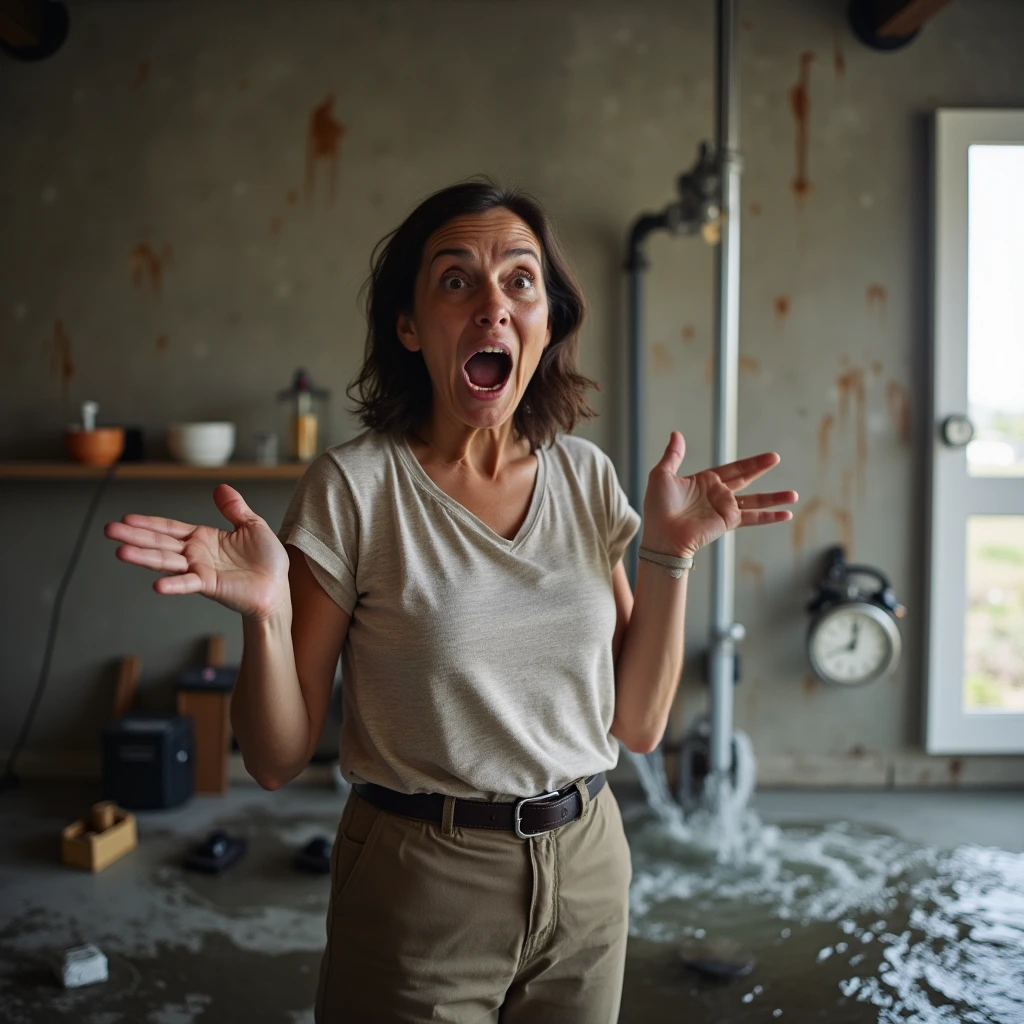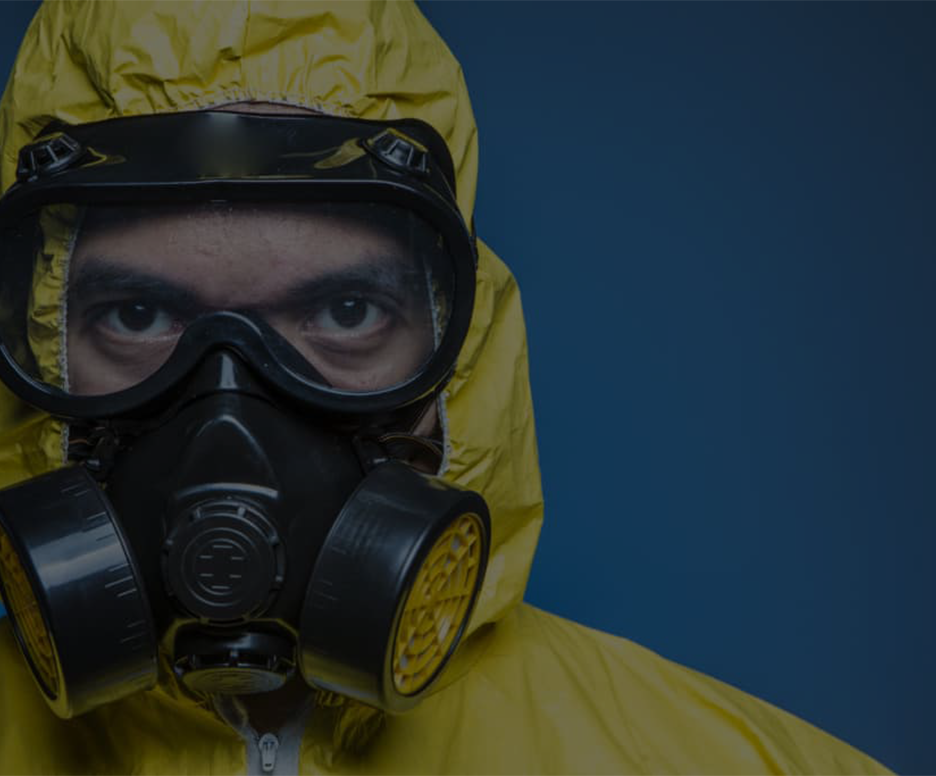
How To Minimize Water Damage From Burst Pipes
A burst pipe can quickly turn into a homeowner’s nightmare, causing extensive water damage that leads to costly repairs and potential health hazards. Whether caused by freezing temperatures, corrosion, or high water pressure, burst pipes demand immediate attention.
The faster you act, the more damage you can prevent, saving thousands of dollars in repairs.
According to the Insurance Bureau of Canada, water damage is the leading cause of home insurance claims, making up nearly 50% of all property claims. Understanding the causes and knowing the right steps to take can significantly reduce the impact of water damage from a burst pipe.
Let’s get right into it!
Understanding The Causes Of Burst Pipes
Freezing Temperatures Can Cause Pipes To Expand And Burst When temperatures drop below zero, water inside pipes can freeze and expand, putting immense pressure on the pipe walls. Pipes located in unheated areas such as basements, crawl spaces, and exterior walls are especially vulnerable.
Corrosion And Aging Pipes Can Weaken Over Time Older homes often have pipes made from galvanized steel or copper, which can corrode over time. Corroded pipes become brittle and are more likely to break under pressure. The average lifespan of galvanized steel pipes is about 20 to 50 years, while copper pipes last around 50 years.
High Water Pressure Can Weaken Pipes Over Time Excessively high water pressure, typically above 60 psi, can weaken pipes, causing them to fail prematurely. Homeowners can install a water pressure regulator to maintain safe levels.
Clogs And Blockages Increase Internal Pressure A severe blockage can increase water pressure within the pipes, creating stress points that eventually lead to failure. Accumulated grease, mineral deposits, and foreign objects can all contribute to pipe blockages.
Poor Installation And Low-Quality Materials Increase The Risk Poorly installed pipes or the use of low-quality materials can contribute to bursts. Improperly connected fittings and pipes not designed for high-pressure systems are more susceptible to damage.
Immediate Steps To Take When A Pipe Bursts
Shut Off The Water Supply Immediately As soon as a pipe bursts, locate the main water shutoff valve and turn it off. This stops the water flow and prevents further flooding.
Turn Off Electricity If The Area Is Flooded If water is pooling near electrical outlets, appliances, or the breaker panel, turn off the electricity to avoid electrocution hazards.
Drain The Pipes To Remove Excess Water After shutting off the main water supply, open all faucets to allow remaining water to drain from the system. This reduces additional water pressure inside the pipes.
Contain The Water To Minimize Damage Use buckets, towels, and wet/dry vacuums to remove standing water as quickly as possible. If the burst pipe is near furniture or electronics, move them to a dry area.
Document The Damage For Insurance Claims Take clear photos and videos of the affected area, water-damaged belongings, and any visible damage to the pipes. This documentation will be useful when filing an insurance claim.
Call A Plumber For Emergency Repairs Professional plumbers can assess the damage, repair the broken pipe, and recommend solutions to prevent future incidents.
Short-Term Water Damage Mitigation
Removing Excess Water Prevents Further Damage Standing water can lead to structural issues and mould growth. Use a wet/dry vacuum or towels to soak up as much water as possible.
Drying Out Affected Areas Prevents Mould Growth Open windows, use fans, and set up dehumidifiers to dry the affected areas. Mould can start developing within 24 to 48 hours if moisture remains.
Checking For Structural Damage Ensures Safety Inspect walls, ceilings, and floors for signs of swelling, warping, or weakening. Water-damaged drywall may need to be replaced to prevent further deterioration.
Disinfecting Surfaces Prevents Bacterial Growth Water from burst pipes can contain bacteria and other contaminants. Clean and disinfect all surfaces with a bleach solution or antimicrobial cleaner.
Using Absorbent Materials Can Help Prevent Further Spread Placing sandbags or absorbent barriers around doorways and entry points can prevent water from spreading to unaffected areas.
Long-Term Prevention Strategies
Insulating Pipes Helps Prevent Freezing Adding foam insulation around pipes, especially those in unheated areas, can help protect them from freezing temperatures.
Maintaining A Consistent Indoor Temperature Reduces The Risk Keeping your home heated above 12°C, even when away, can prevent pipes from freezing.
Regular Plumbing Inspections Detect Problems Early Having a professional plumber inspect your pipes annually can identify potential weak spots before they become serious issues.
Installing A Water Pressure Regulator Protects Pipes Keeping water pressure at a safe level, usually between 40 and 60 psi, reduces strain on pipes and lowers the risk of bursting.
Upgrading To More Durable Pipes Improves Longevity Replacing old galvanized or polybutylene pipes with modern materials such as PEX or copper can significantly reduce the risk of bursting.
Smart Leak Detectors Provide Early Warnings Smart leak detection devices can alert homeowners to potential leaks or pipe bursts before major damage occurs. Some models can even shut off the water supply automatically.
Insurance And Financial Considerations
Does Home Insurance Cover Burst Pipes Most home insurance policies cover water damage caused by burst pipes, provided the homeowner has taken reasonable steps to prevent freezing.
How To File A Claim For Water Damage Contact your insurance provider as soon as possible, document the damage, and provide any necessary repair estimates or receipts.
Reducing Out-Of-Pocket Costs Can Help Minimize Expenses Homeowners can reduce costs by performing minor repairs themselves and only hiring professionals for major issues.
Government Assistance Programs May Be Available Some Canadian provinces offer financial assistance for emergency home repairs, particularly for seniors or low-income households.
When To Call A Professional Vs DIY Repairs
Simple Leaks And Temporary Fixes Can Be Handled DIY Small leaks can often be patched using pipe clamps or epoxy putty until a permanent repair is made.
Major Structural Or Mould Damage Requires Professionals If drywall, flooring, or structural components are affected, professional restoration services are needed to ensure proper drying and mould removal.
The Cost Of Professional Repairs Varies By Location Plumbing repair costs in Canada vary depending on the severity of the issue. Emergency burst pipe repairs can range from $300 to $2,000, while water damage restoration can exceed $5,000.
FAQs: Minimizing Water Damage From Burst Pipes
How do I find the main water shutoff valve in my house?
Most main shutoff valves are located in the basement, near the water meter, or along an exterior wall where the main line enters the home.
What are the early warning signs of a pipe about to burst?
Signs include unusual water pressure changes, discoloured water, frequent leaks, and visible pipe corrosion.
How long does it take for mould to grow after a burst pipe?
Mould can start developing within 24 to 48 hours if moisture is not properly removed.
Can I claim water damage from burst pipes on my insurance?
Most home insurance policies cover sudden and accidental water damage but may exclude claims caused by neglect.
Should I replace all pipes if one bursts?
If your pipes are old, corroded, or have a history of leaks, it may be wise to consider a full replacement.
How can I prevent frozen pipes during extreme Canadian winters?
Insulating pipes, keeping cabinet doors open to allow warm air to circulate, and allowing faucets to drip slightly can prevent freezing.
Are smart water leak detectors worth the investment?
Yes, smart leak detectors provide early warnings and can automatically shut off the water supply to prevent major damage.
What’s the best way to dry carpets and flooring after a water leak?
Use fans, dehumidifiers, and wet/dry vacuums to remove moisture quickly. Professional drying services may be needed for severe cases.
How do I check if my walls have absorbed water after a burst pipe?
A moisture meter can detect hidden water in walls, or you can look for signs such as bubbling paint or soft drywall.
Can I use a space heater to dry out wet areas?
Yes, but it should be used in conjunction with fans and dehumidifiers for effective drying.
Conclusion
Taking immediate action after a burst pipe can significantly minimize damage and reduce repair costs. Regular maintenance, insulation, and smart technology can help prevent future incidents. Being prepared and knowing the right steps to take can save time, money, and stress when dealing with water damage.
If you have any questions about our article, “How To Minimize Water Damage From Burst Pipes” or need water damage restoration services contact us at 1-833-WE-DRY-IT any time 24/7/365 all the time or connect with us on social media, we’re there when you need us!
Related Posts
Water Damage Restoration Articles
What you can expect from a fire damage restoration company
Water damage prevention tips from the most common problems we’ve seen
Top causes of water damage in commercial buildings and how to find them
Must-know water damage tips: What to do after your house floods
What does good water damage restoration look like?
DIY water damage restoration and the hidden dangers
How to choose the right water damage company
Flast floods: What to do before, during and after a flash flood
What to do when your attic leaks?
Mould Removal Restoration Articles
5 Signs You Have Mould Growing In Your Walls
“Can I Remove Mould Myself?” Our Mould Removal Experts Have Answers
7 Must-Know Reasons Why You Should Get A Mould Inspection Before Buying A House
Does Mould Attract Bugs? Yes And Here’s What Kind And Why
How To Remove Mould From The Attic [Mould Prevention Tips Inside]
How Rain Causes Mould Growth-Prevention Tips Included
Must-Know Tips: How To Remove Mould In Your Basement
Fire Damage Restoration Articles
How to clean up after a house fire
Fire damage restoration checklist
Fire damage tips: 6 hazards property owners miss
How smoke from fires can negatively affect your health
What are the most common causes of house fires?
10 helpful smoke damage cleaning tips
Related Water Damage Services
Fire damage restoration services
Water damage restoration services
Emergency cleanup services
Mould removal services
Weather damage services

